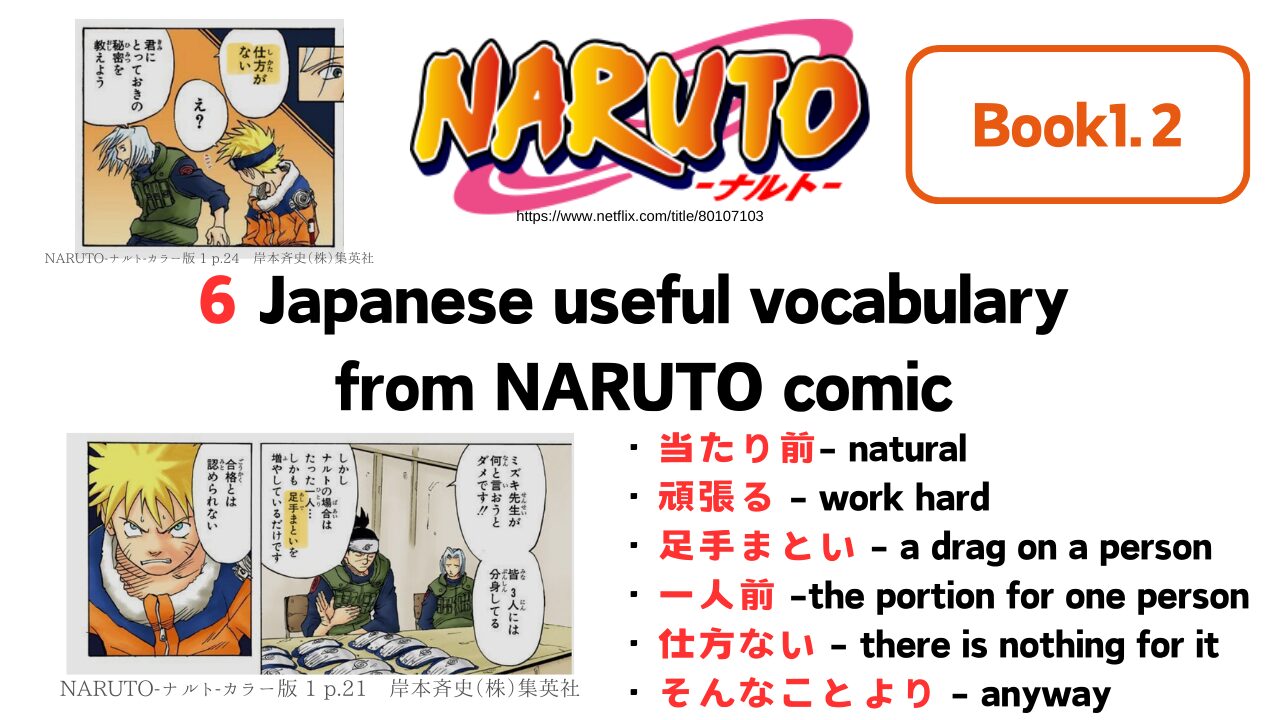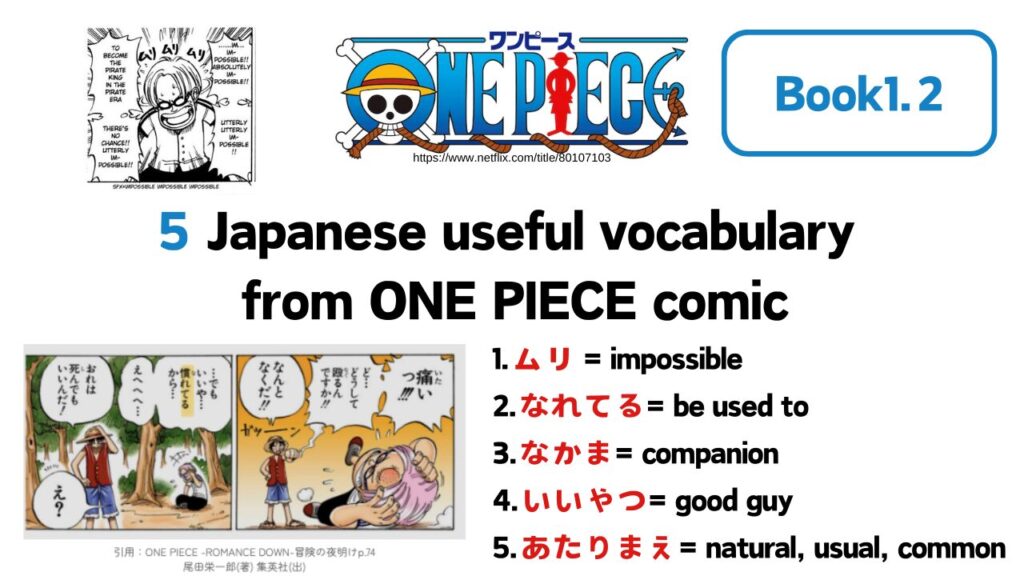
This article will introduce the words that Japanese people frequently use.
Comic

ONE PIECE, Digital colored comics, Japanese, ROMANCE DOWN, 1
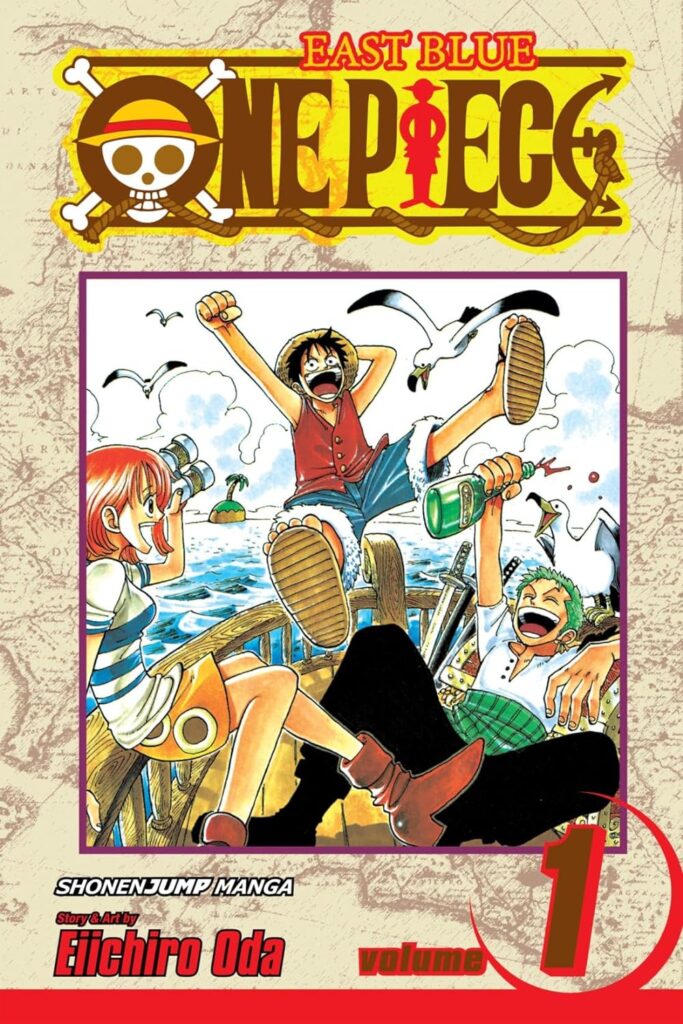
One Piece, Vol. 1: Romance Dawn (One Piece Graphic Novel)English
Can you say... in Japanese
1.無理- mu ri
| ひらがな | むり |
| カタカナ | ムリ |
| 漢字 | 無理 |
| pronunciation | mu ri |
| meaning | impossible, no |

尾田栄一郎(著) 集英社(出)
In this scene, Luffy says, ”I want to become the Pirate King," and Coby replies, "It's impossible." in four different ways.
1.ムリです
=This is a polite way of saying.
Coby uses Keigo towards Luffy because Luffy is older than Coby.
2. 絶対無理
=absolutely impossible

3.ムリムリムリ
=This also means "it’s impossible." but it has a similar meaning to " No No No".
4.無理に決まってます
=It's impossible, of course. or It's absolutely impossible.
This is a polite way of saying.(=Keigo)
*決まってます= of course / It's so obvious
5.ムリムリ
=This also means "it’s impossible." but it has a similar meaning to " No No".
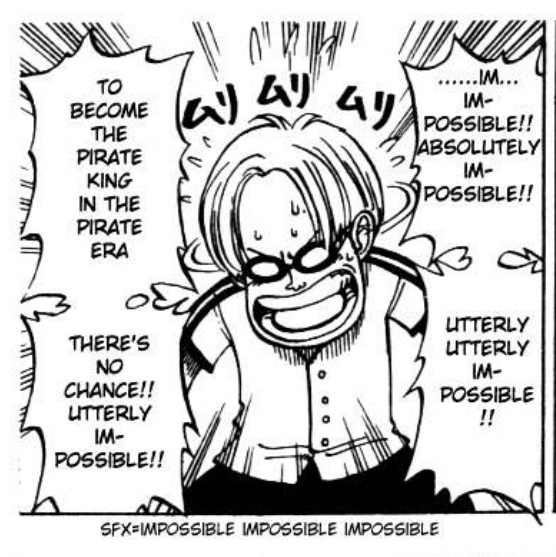
尾田栄一郎(著) 集英社(出)
2.慣れてる- na re te ru
| ひらがな | なれてる |
| カタカナ | ナレテル |
| 漢字 | 慣れてる |
| pronunciation | na re te ru |
| meaning | be used to, be accustomed to |
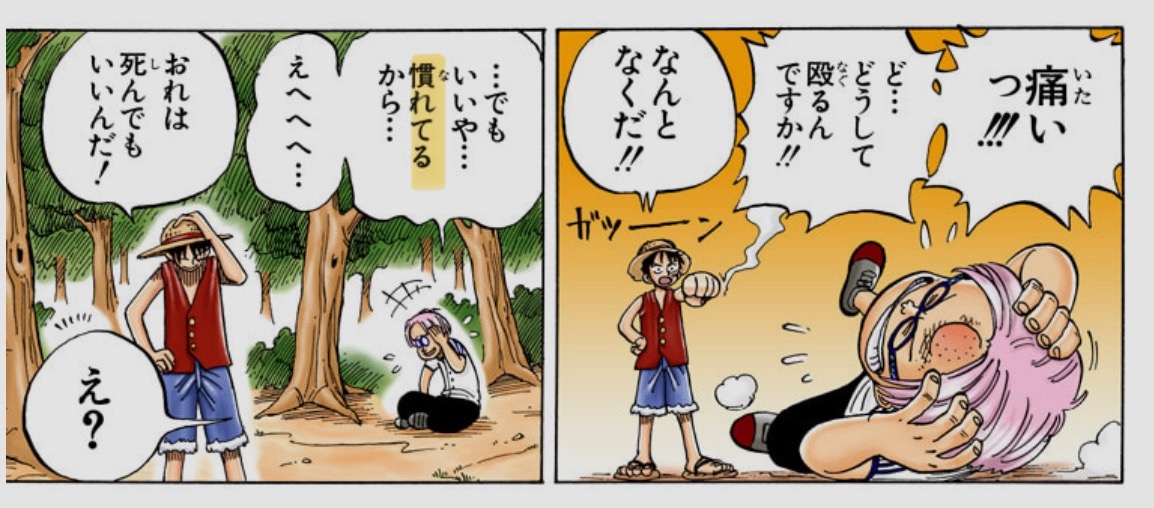
尾田栄一郎(著) 集英社(出)
In this scene, Coby tells Luffy that it's impossible for him to become Pirate King, and Luffy somehow hit Coby.
And then Coby says to Luffy, "Why did you hit me!! but I'm used to(=慣れている) being hit. so It's ok..."
However, the correct way to say it is "慣れている"(add "い”)
3.仲間- na ka ma
| ひらがな | なかま |
| カタカナ | ナカマ |
| 漢字 | 仲間 |
| pronunciation | na ka ma |
| meaning | friend, companion, brother |

尾田栄一郎(著) 集英社(出)
The word ”仲間” is frequently used in the ONE PIECE manga.
The Japanese word "nakama" typically refers to a companion, comrade, or member of a group. It conveys a sense of belonging, shared goals, or friendship, often with a feeling of unity or camaraderie.
It can be used to describe colleagues , friends, teammates, or people who are part of the same community or group, working or striving together toward something.
In some contexts, it might be translated as “ally” or “peer.” The term carries a deep sense of connection and trust, often beyond just casual acquaintance.
This panel contains the word "mu ri" that I introduced earlier, so take a look.
4.いい奴 / 悪い奴 - i i ya tsu / wa ru i ya tsu
| ひらがな | いいやつ / わるいやつ |
| カタカナ | イイヤツ / ワルイヤツ |
| 漢字 | いい奴 / 悪い奴 |
| pronunciation | i i ya tsu / wa ru i ya tsu |
| meaning | good person, guy / bad person, guy |


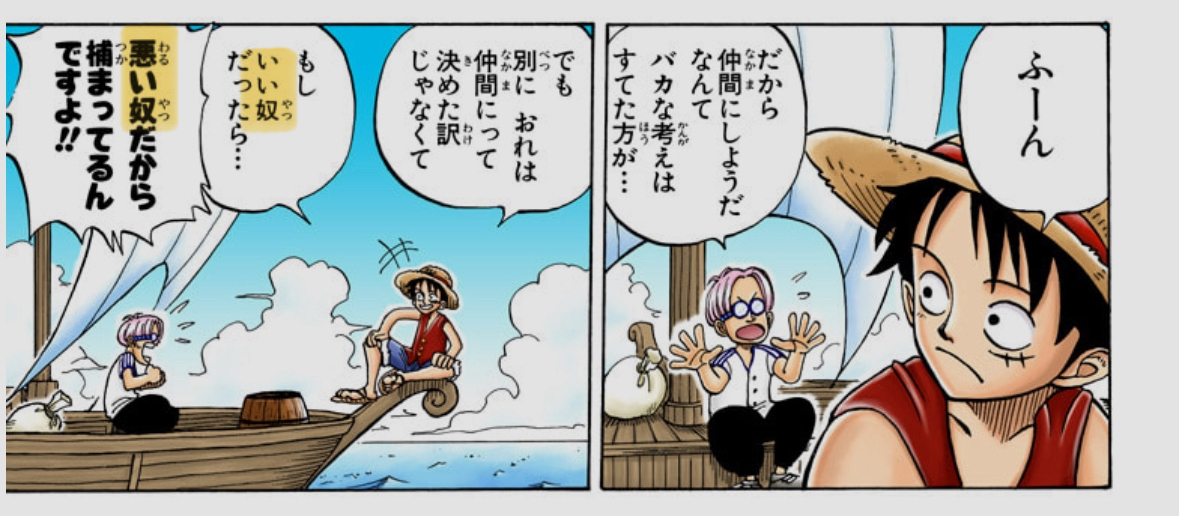
尾田栄一郎(著) 集英社(出)

尾田栄一郎(著) 集英社(出)
The term 奴 (やつ, yatsu) in Japanese can have several meanings depending on the context. It generally refers to a person or thing and can be translated as "guy," "fellow," or "person."
However, it can also carry a somewhat derogatory or informal tone, implying disdain or a lack of respect. For example, one might use it to refer to someone they consider bothersome or inferior.
In casual conversation among friends, it can be used more playfully, but it’s important to be mindful of the context and the relationship with the person being referred to, as it can come off as rude if used inappropriately.
5.当たり前- a ta ri ma e
| ひらがな | あたりまえ |
| カタカナ | アタリマエ |
| 漢字 | 当たり前 |
| pronunciation | a ta ri ma e |
| meaning | natural, ordinary, usual, common, obvious, of corse |
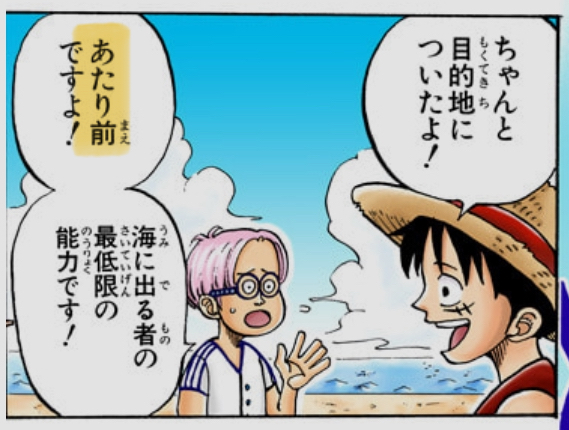
尾田栄一郎(著) 集英社(出)
Example

日本のご飯は美味しい!
Japanese food is delicious!
当たり前ですよ!
Of corse!

Different ways to say this phrase are presented in this article.

One Piece Box Set: East Blue and Baroque Works, Volumes 1-23 (One Piece Box Sets)

